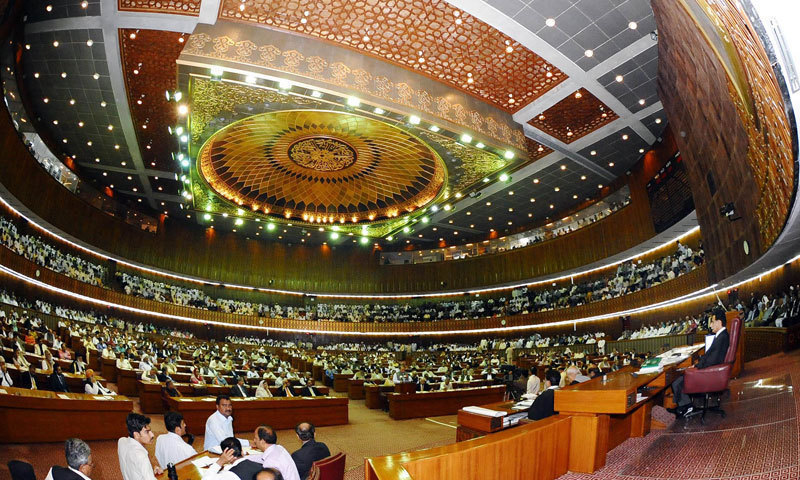By: Kainat Saif
Developing countries can no longer depend on foriegn aid. For example, Pakistan’s history since its inception in 1947 provides evidence on how the donor nations, when sending aid, consign demands and requirements for achieving their own strategic objectives. This inevitably leads to incompatibility of objectives, which in turn has led to never-ending and multidimensional domestic conflict in the recipient society.
Another challenge associated with foreign aid is the growing corruption at all levels of administration and distribution channels. The legal systems, procedures and laws in developing nations such as Pakistan, remain less legal and considerably more political. In Pakistan the judiciary sets laws – good laws, but execution of laws is not efficient. Corrupt officials get away with cronyism, nepotism and outright theft of funds. This confirms that aid quite often leads to corruption which gradually destroys the fabric of society and it’s fiscal capacity.
Pakistan receives International aid from different countries and several international organizations. Major chunk, however, comes from the USA. Pakistan has obtained $7.381 billion foreign assistance during Jul-April FY20 from bilateral and multilateral development partners, foreign commercial borrowing, and commodity financing from Islamic Development Bank and Saudi Arabia, alone.
Mr. Muhammad Arshad Khan and Mr. Ayaz Ahmed, published a paper titled Foreign Aid – Blessing or Curse. In it they discuss that Pakistan being a Substantial Aid Recipient (SAR) since 1947 has done very little development in terms of its socio-economic status on the world stage. However, the role of FDI (Foreign Direct Investment) is quite crucial to affect the desired changes.
Currently CPEC (China Pakistan Economic Corridor) is the key driver of FDI in Pakistan. Joint Ventures (JVs)and FDIs are highly preferred over loans or foreign aid. The former creates jobs/employment opportunities for locals, formation of new industries, revitalization of the infrastructure by incorporating new and latest technological advances. It also assists in development of rural and other backward areas, while promoting exchange rate stability. In providing financial and technological wherewithal it helps increase exports and development of human capital resources etc.
The main cause behind the slow economic growth in Pakistan is its greater dependency on Public Sector Enterprises. Similarly, within Pakistan in the context of various provinces much federal capital spending is required in order to balance the fiscal deficit faced by those provinces. PPP (Public Private Partnership) provides an incentive for companies to create alternative solutions in order to meet performance requirements at lower costs and/or with higher efficiencies.
In Pakistan, the main source of revenue is agriculture. In 2019, agriculture alone contributed around 22.04 percent of GDP. To boost agricultural activities innovative methods of farming and agriculture are required. Modern technological advances and techniques are sorely needed to improve the mass production practices. We should adopt major technology innovations by developed countries such as indoor vertical farming, automation and robotics, livestock technology, modern greenhouse practices, precision agriculture and artificial intelligence, in addition to blockchain etc
In 2019 Pakistan ranked 105th among the 129 economies featured in the GII (Global Innovation Index). In Pakistan well thought out, deliberate creative destruction is not supported hence innovation is minimum. For example, in western countries old and decrepit skyscrapers (like the Trump Tower in Atlantic City, New Jersey) which was recently dynamited to rubble in order to make room for new and progressive uses of the same land mass.
It’s a fact that trial and error leads to the discovery. Invention that is supported by innovation remains sustainable and relevant to the needs of time. We lack dynamism and fall behind the developed nations by decades..
There is good news as well. As a result of recent business climate reforms, Pakistan’s ranking in the World Bank Group’s Doing Business Report 2020 has shown an improvement by 28 points from 136 to 108 out of 190 economies. This will bring about ease for entrepreneurs to bring their ideas in order to offer innovative solutions for the myriad of challenges facing society in Pakistan.
In addition, better ways of fighting poverty in Pakistan lies in channelling energies of youth into productive work, increased allocations of social safety nets, innovative challenges, better social policies combined with improved social services such as in education and health, gender equality and finally in accountability.
In their book Prosperity Paradox by Messrs Clayton Christensen, Efosa Ojomo, and Karen Dillon, the example of South Korea is given as a nation that has gone from being dependent on foreign aid to becoming a donor nation state. The reason behind this remarkable transformation is innovation, public trust and a huge dose of public discipline. If South Korea, which not very long ago, had been devastated by poverty, political chaos, popular discontent and had been widely addicted to US-aid has been able to bring about such a remarkable transformation – Why not Pakistan? And why other developing countries similarly situated cannot also follow in the footsteps of South Korea?
There are many other factors that have curtailed FDIs in Pakistan. An undesirable energy sector where electricity is available inconsistently and often intermittently, at high prices. The extremism and general intolerance found among the populace is another factor that keeps investors away so they go elsewhere with their investment funds. One of the biggest challenges facing Pakistanis is their inability for self-analysis and consequential change, thus remaining in the grips of self-inflicted delusions of greatness.
The writer is a law student, she can be reached at [email protected]







